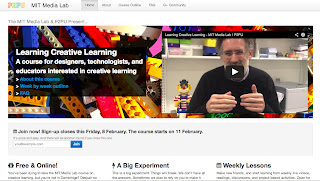Some might argue that if I had chosen a different approach to homeschooling I wouldn't have worried so much about what my children were (or were not) learning from me. A formal curriculum, one which covered every subject my children "needed" to know, would have provided uniform and consistent lessons that would make irrelevant my personal aptitudes (or ineptitudes). After all, if the textbook publishers and vendors at homeschooling conferences are to be believed, the "right" curriculum is all an instructor needs to be successful.
As it was, I decided to skip the curriculum-based approach and experiment with various ways of supporting my kids as they learned. I worked to redefine my role as a teacher. Instead of asking how I should teach a subject such as math or writing, I asked myself:
How does a parent who isn't directly teaching a subject, such as math, cultivate an environment that nurtures the type of thinking and skills that the subject requires?







